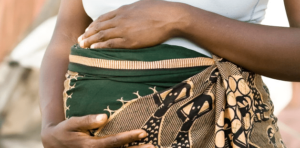
Health experts estimate that 70 percent of women in West Africa use skin lightening creams. (Credit: Getty Images)
A disturbing skin bleaching trend in Ghana has officials worried for the health of pregnant women and their unborn babies.
Earlier this year, health officials issued a stern warning against women taking pills during pregnancy to lighten the skin of their unborn children while still in utero. Health experts warned that the illegal drugs could lead to birth defects, as well as cause damage to the baby’s limbs and internal organs.
Ghana’s Food and Drug Authority (FDA) said using Glutathione tablets for skin bleaching purposes is “dangerous” and emphasized that “… no product has been approved by the FDA in the form of a tablet to lighten the skin of the unborn child,” BBC Africa reported. The trend continues to grow, however, with pills being smuggled into the country inside airport luggage, oftentimes in large quantities.
A 2016 New York Times report described skin whitening/lightening as a multibillion-dollar industry that “dominates the West African cosmetics market.” The dangerous trend, which is known to cause grave damage to the skin, has taken hold in Caribbean countries as well as parts of Asia. Ghana has taken steps to discourage skin whitening, and in 2017, banned certain bleaching products that contain hydroquinone, a topical ingredient that disrupts the synthesis and production of melanin, leaving the skin less protected from West Africa’s intense sunshine.
Numbers estimate that 70 percent of West African women use some sort of bleaching cream while around 35 percent of South African women use lightening products as well.
The idea that “whiter is better” remains pervasive in the African diaspora, with cultural and historical ties to white supremacy. Lafayette College professor Yaba Blay addressed this in a 2011 academic paper describing white supremacy as an “instigator” to skin lightening.
“While it’s true that skin bleaching represents a multifaceted phenomenon, with a complexity of historical, cultural, sociopolitical, and psychological forces motivating the practice, the large majority of scholars who examine skin bleaching at the very least acknowledge the institutions of colonialism and enslavement historically, and global White supremacy contemporarily, as dominant and culpable instigators of the penchant for skin bleaching,” Blay wrote.
Ghana’s FDA said market surveillance and stakeholder activity have helped popularize the trend among women of all socio-economic backgrounds. The West African nation has vowed to crack down on companies and individuals peddling the illegal pills.


